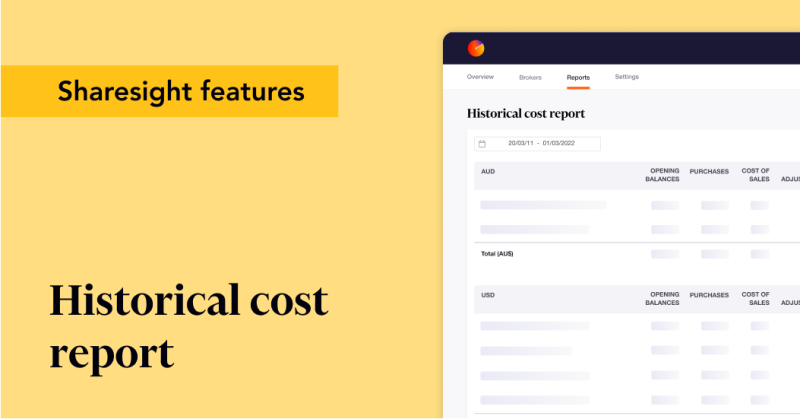3 ways to become a better investor in 2021
With continued market volatility expected in the year ahead, now is the perfect time to consider what you can do to become a better investor while protecting your portfolio against turbulent market conditions. Luckily, there are some simple measures you can put into place that will give you increased visibility into your portfolio’s returns while saving you time and money on your investments. Keep reading for three ways to become a better investor in 2021.

Track against market benchmarks
In times of market volatility, it’s important not only to track your investment performance, but to put that performance into context with the broader market. One way of doing this is by choosing a benchmark for your portfolio that aligns with your investment goals. For example, you may choose an ETF or fund that tracks a certain index, or one that tracks a basket of stocks in a particular industry that will give you a like-for-like comparison with your own portfolio.
When benchmarking your portfolio, the idea is that you should aim to outperform the benchmark over the year. And if you find you are consistently underperforming compared to the benchmark, you may decide to direct your investments into the ETF or fund instead, which could be an easy way to earn better returns.
It’s simple to benchmark your portfolio with Sharesight’s portfolio tracker, which allows investors to track their portfolio against over 170,000 stocks, ETFs and managed/mutual funds from around the world. As can be seen in the screenshot below, while the sample portfolio is outperforming its benchmark, it is still clearly following the same market trends. In the case of an underperforming portfolio, this is a good way to determine whether your portfolio is underperforming due to your own investment decisions, or whether it has been caused by broader market events.

An example of a portfolio that is outperforming its benchmark.
Track your portfolio diversity
One of the best defense mechanisms for any investor is to avoid concentration risk by diversifying the assets in your portfolio. This could mean shifting your portfolio away from purely individual equities to a balance of different asset classes, or expanding your investments into new countries, sectors and industries.
With Sharesight, you can easily determine your asset allocation using the Diversity Report, which shows how your portfolio is diversified across different investment types, industry and sector classifications, markets and countries. Sharesight users also have the option to create their own Custom Groups that align with their specific investment strategy or asset allocation target, which makes it easy to track your portfolio against your target and rebalance your assets as needed.

A Diversity Report for a portfolio of global stocks, grouped by industry classification.
Once you have established your asset allocation, running Sharesight’s Contribution Analysis Report will give you a clear picture of how your asset classes are actually performing. This will help you evaluate the success of your investment strategy and determine whether it needs to be revised in the coming year.

A global investment portfolio evaluated with the Contribution Analysis Report, which shows motor vehicles have made a significant contribution to overall returns.
Track your dividends
If you’re invested in stocks, ETFs or managed/mutual funds, chances are you receive some dividends or distributions throughout the year. What many investors don’t realise is that these payouts directly impact your returns and are an important factor to consider when calculating your investment performance. For this reason, properly tracking your dividend income is one of the best things you can do to become a more informed investor and help set your investment goals for the year.
Done manually, tracking dividends can be a tedious and time consuming task, requiring you to pull information from various paper documents or share registries. It becomes even more complicated if you have overseas investments that pay dividends in a foreign currency, which means your payments are impacted by the exchange rate.
By using a dedicated portfolio tracker that automatically tracks dividends like Sharesight, it’s easy to calculate dividend yield, and visualise the impact of dividends on your portfolio’s returns. For example, in the screenshot below you can see that dividends have contributed to 7.53% of this holding’s total returns. If you were to disregard the impact of dividends, looking only at capital gains, you would think your holding’s total returns were only 17.53%, as opposed to 25.25%. This is a big difference, and a key example of how knowing your true returns is essential for evaluating your portfolio’s performance and setting your investment goals.

An example of a holding with dividend payments that have significantly impacted the holding’s total returns.
Ditch the spreadsheet
Stop wasting time and money by manually tracking your returns in a spreadsheet and relying on incomplete information from brokers. Become a better investor in 2021 by leveraging Sharesight’s powerful features for self-directed investors, including dividend tracking, benchmarking and a range of advanced reports. What are you waiting for? Sign up and:
-
Track all of your investments in one place, including stocks, mutual/managed funds, property and even cryptocurrency
-
Automatically track your dividend and distribution income from stocks, ETFs and mutual/managed Funds
-
Run powerful reports built for investors, such as Performance, Portfolio Diversity, Contribution Analysis and Future Income (upcoming dividends)
-
See the true picture of your investment performance, including the impact of brokerage fees, dividends, and capital gains with Sharesight’s annualised performance calculation methodology
Sign up for a FREE Sharesight account and get started tracking your investment performance (and tax) today.

FURTHER READING

Sharesight nominated for 2025 Wealth Tech Innovator of the Year
Sharesight has been chosen as a finalist in the 2025 Australian Wealth Management Awards, in the Wealth Tech Innovator of the Year category.

Prepare your annual accounts with our historical cost report
Sharesight's historical cost report is a powerful tool for investors who need to prepare annual accounts or financial statements with mark-to-market accounting.

Sharesight product updates – July 2025
This month's focus was on rolling out predictive income forecasting, as well as improved cash account syncing across different brokers and currencies.